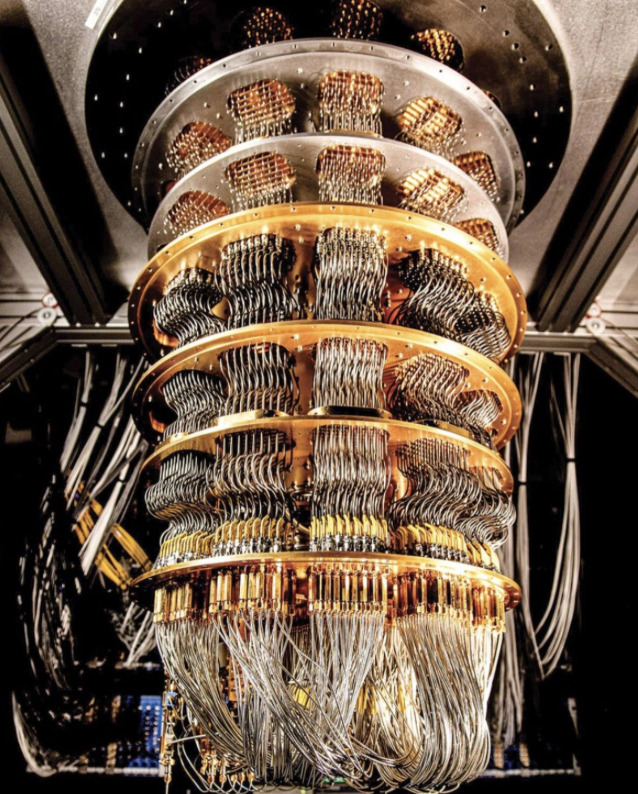Quantum computing is poised to transform the technological landscape, with the promise of being able to solve complex problems and perform calculations at speeds far beyond the reach of today’s classical computers. By harnessing the powers of quantum mechanics such as superposition, entanglement, and quantum interference, these computers process information in fundamentally new ways, providing capabilities that traditional systems could only dream of. .
How quantum computers work
Quantum computers operate on the principle of quantum states, which allows qubits to exist in multiple states (both 1 and 0) at the same time. This ability to perform parallel computations allows quantum computers to solve problems much faster than classical systems. Unlike classical bits, which are constrained to represent either 0 or 1, qubits take advantage of a strange phenomenon in quantum mechanics that allows them to perform calculations at scales beyond the limits of traditional computing. Masu.
The challenge of building a quantum machine
Creating a functioning quantum computer is a major engineering challenge. Requires precision and a deep understanding of quantum mechanics. Engineers are experimenting with different qubit technologies to build scalable quantum systems. These include trapped ion qubits, superconducting qubits, and even more exotic options like topological qubits, each with unique advantages and challenges in terms of stability, coherence time, and error rates. We provide
The birth of quantum computing
The idea of quantum computing was first proposed in 1982 by physicist Richard Feynman, who envisioned a new type of machine that could simulate quantum systems. Traditional computers based on binary bits struggle with such simulations due to the exponentially complex nature of quantum systems. Feynman’s insight was groundbreaking. Quantum computers exploit quantum bits (qubits), which can represent both 1 and 0 at the same time, and can dramatically increase computational power.
Benefits of quantum computing
Parallel processing: Quantum computers can process large amounts of data simultaneously by exploiting the quantum states of qubits. This allows us to tackle problems that are not possible with traditional computers.
Exponential power: The computational power of quantum systems increases exponentially as qubits are added, unlike in classical computers, which increase linearly with the number of transistors.
Breakthrough applications: Quantum computers are expected to revolutionize fields that require vast amounts of computational power, such as cryptography, drug discovery, climate modeling, and optimization problems.
Challenges and the way forward
Quantum computing holds great promise, but the path to practical large-scale quantum systems is fraught with challenges. Quantum computers are highly sensitive to noise and environmental disturbances, so error correction and system stability are major hurdles. Additionally, quantum systems will focus on niche areas that require extraordinary computational power, and classical computers may continue to dominate for many everyday tasks.
Frontiers of quantum computing
Quantum computers operate on the principles of quantum theory, which control the behavior of energy and matter at the atomic and subatomic level. These systems utilize subatomic particles such as electrons, photons, and ions to perform calculations that would take a traditional computer thousands of years.
Leading the quantum revolution
As the battle for supremacy in quantum computing heats up, a mix of tech giants and nimble startups are pushing the boundaries of what’s possible. Here are some of the pioneers in the field of quantum computing.
IBM: A pioneer in superconducting qubit technology, IBM’s quantum processor Condor boasts 1,121 qubits. Their roadmap aims to achieve 100,000 qubit systems by 2033, with modular quantum computing systems like Quantum System Two leading the way.
Intel: Known for its semiconductor expertise, Intel is researching silicon-based spin qubits. The company’s Tunnel Falls chip features 12 qubits and represents a step toward building more stable and scalable quantum processors.
Google Quantum AI: Achieved a breakthrough in quantum computing with the Sycamore processor, which demonstrated quantum supremacy. Google is currently focused on quantum algorithms for machine learning and aims to develop a 1 million qubit quantum computer.
Microsoft Azure Quantum: A full-stack quantum computing platform, Microsoft combines quantum hardware with software tools like Q# to provide developers with a complete quantum computing ecosystem.
Amazon Web Services (AWS): AWS provides access to a variety of quantum hardware platforms through its Braket service, allowing users to experiment with hybrid quantum-classical computing.
Quantinuum: Formed through the merger of Honeywell Quantum Solutions and Cambridge Quantum Computing, Quantinuum is a leader in hardware-agnostic quantum solutions and offers TKET software for quantum programming.
Rigetti Computing: Known for its use of superconducting circuits, Rigetti focuses on integrating quantum and classical systems, particularly for applications in machine learning and chemistry.
IonQ: Specialized in trapped ion qubits, IonQ’s quantum systems offer long coherence times and accuracy, making them ideal for quantum chemical simulations and financial modeling.
Xanadu: Powered by photonic quantum computing, Xanadu leverages light-based qubits to enable quantum machine learning research in PennyLane software, overcoming temperature and scalability limitations.
D-Wave Systems: A pioneer in quantum annealing, D-Wave specializes in optimization problems and offers quantum computing systems already used by companies such as Google and NASA.
quantum horizon
The race to master quantum computing is well underway, with both established technology companies and innovative startups working relentlessly to push the boundaries of what’s possible. Although we still have a long way to go before quantum computers can outperform classical systems in all fields, their potential to revolutionize industries such as drug discovery, logistics, finance, and cybersecurity is huge. . As research continues and breakthroughs emerge, the future of computing is undoubtedly quantum.
quantum computing stocks
Alphabet Inc. (GOOG, GOOGL)
Year-to-date return: 33.0%
Future dividend yield: 0.43%
Honeywell International Co., Ltd. (HON)
Year-to-date return: 11.3%
Future dividend yield: 1.97%
Microsoft Corporation (MSFT)
Year-to-date return: 18.7%
Future dividend yield: 0.75%
Form Factor Co., Ltd. (FORM)
Year-to-date return: 0.7%
Future dividend yield: N/A
IONQ Co., Ltd. (IONQ)
Year-to-date return: 166.1%
Future dividend yield: N/A
International Business Machines Corporation (IBM)
Year-to-date return: 45.8%
Future dividend yield: 2.90%
Nvidia Inc. (NVDA)
Year-to-date return: 172.8%
Future dividend yield: 0.03%
Righetti Computing, Inc. (RGTI)
Year-to-date return: 559.0%


